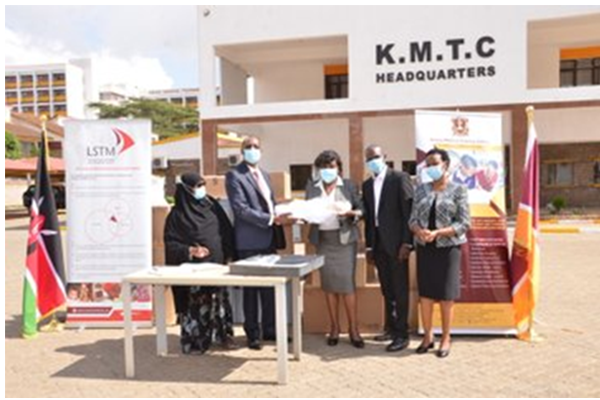The success of LSTM broad portfolio of work in Kenya is a result of our expertise in using rigorous research methodology, our commitment to research ethics, our ability to work in genuine partnership with key stakeholders, and our proven track record delivering high-quality project management.
Quality-assured, rigorous research methodology
Our team has expertise in both qualitative and quantitative research for all stages of research design, data collection and data analysis. From design to delivery and dissemination, we work to the highest quality standards to produce findings and recommendations that are evidence-based, relevant, and useful to stakeholders.
To ensure maximum credibility of our work:
- During research design, we conduct literature reviews, review and formulate relevant research questions and adopt the design that is most suitable to address these questions. Where possible, we prioritize a mixed-methods approach so to validate findings via triangulation of sources.
- At implementation stage, we use rigorous research methods to address the research questions. Protocols for the collection of quantitative and qualitative data are designed following a thorough process of adoption of best practices, adaptation and validation of tools, peer review, and pilot testing.
- During data collection, we oversee the design and delivery of training to data collectors, and provide quality assurance. We prioritize electronic data capturing where possible, to enhance the quality and timeliness of data. Data collection activities are planned and conducted in cooperation with local partners, in line with local requirements.
- During data analysis, a rigorous process of analysis and triangulation of data is used, as well as internal and external peer review of data analysis plans and reports. This ensures that results shared with partners are of the highest quality.
Commitment to research ethics
LSTM operates in accordance with the Helsinki declaration for medical research (World Medical Association 1964 and subsequent amendment 2013) and all research is implemented under the principles guiding the LSTM Code of Practice for Research Conduct. Where applicable, research proposals are subjected to review and approval by the LSTM Research Ethics Committee and host country research ethics bodies to ensure the highest standards and quality. The principle of minimising harm to participants is a guiding one in our studies. Informed consent is sought with voluntary participation and right to withdraw guaranteed to all participants. Use of data is restricted to agreed purposes and data management practices are based on set standards (including with regard to integrity, transparency and clarity). To minimize potential breaches of confidentiality, all data are anonymised during data collection, analysis, and report preparation, so that responses cannot be traced to individual respondents. All of our research is underpinned by LSTM commitment to ethics, gender equality and human rights, impartiality and independence and quality assurance.
High-quality project management
As a registered charity in the United Kingdom, LSTM is contracted by and receives funding from a wide variety of national and international governmental and non-governmental organisations such as DFID, the Global Fund, the Medical Research Council, Wellcome Trust, UNICEF, WHO, UNFPA, the European Union, USAID, NIH, and Bill & Melinda Gates Foundation. LSTM has a strong track record of successfully managing complex programmes to ensure that activities are carried out to a high standard, on schedule and within budget.
Genuine partnerships
High quality research does not necessarily translate into useful information for decision makers. We believe that sustainable changes cannot happen without the government’s leadership and commitment and we work at all levels (national, provincial and district) to strengthen health systems in maternal and newborn health.The core strength of our approach is our ability to engage with key partners. From conception to design and delivery, CMNH works in genuine partnership with the Ministry of Health, Kenya and other key organisations.
“MiH is the best thing that has ever happened to Kenya in MNH. It is highly valued and has succeeded in demystifying MNH.”
Ministry of Health, Kenya
